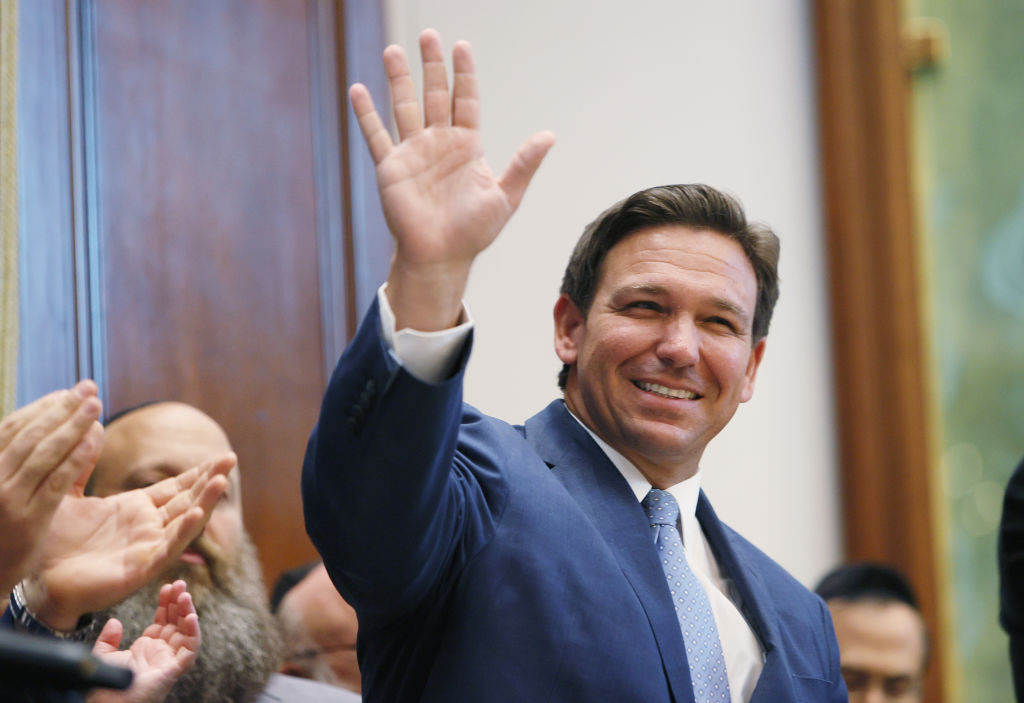Do you remember Rebekah Jones? Don’t worry, we’d forgotten about her too. At the height of the pandemic, she resigned as a low-level functionary in Florida’s public health bureaucracy and accused her state’s governor, Ron DeSantis, of cooking the books on Covid.
There was never much evidence to back up Jones’s claims of data manipulation, but that didn’t stop her becoming a pandemic-era media darling. She was given seemingly endless airtime on cable news while newspaper profiles heralded her as a brave whistleblower. Boosted by this favorable coverage, the kooky data scientist even announced a congressional run. But it is now as clear as could be that Jones was wrong. In addition to her own failure to produce any proof, a May report by the Florida Department of Health’s Inspector General concluded that analysis of her allegations showed that “the alleged conduct, as described by the complainant [Jones], did not occur.”
The only question of any enduring significance is why the Jones saga was such a big deal in the first place. Why were her claims given such a high-profile, unquestioned airing? The answer, of course, lies in Florida’s totemic pandemic status as the state that stayed open. To accept the accuracy of the Sunshine State’s Covid numbers is to acknowledge the futility of many of the restrictions Americans in other states were forced to endure. We need only look at California’s and Florida’s radically different policies and comparable case numbers — or where Americans moved to, and fled from, during the pandemic — for a definitive answer to the thoroughly litigated question of the wisdom of lockdowns and mask mandates.
But as Karol Markowicz (a freshly minted Floridian herself) explains, the Florida story is about more than the pandemic. The southeasternmost state looms large in all manner of ways: Ron DeSantis is perhaps the most visible conservative in America these days. With the possible exception of another Florida resident, Mar-a-Lago’s President-in-Exile, the state’s governor has emerged as the right’s culture warrior par excellence. From scrapping with Mickey Mouse over the unfairly nicknamed “Don’t Say Gay” bill and squaring off against the Biden administration on immigration, to taking a swing at big tech, DeSantis has a knack for getting himself into high-profile national scraps. He also has a talent for winning them, a useful trait for a 2024 presidential contender.
Economically speaking, Florida is a libertarian triumph. While individuals have flocked to Florida to avoid blue-state pandemic rules, businesses are migrating south in search of a less hostile environment. That success, as Sal Nuzzo describes, has been years in the making, though with the state growing so quickly, the question is whether Florida becomes a victim of its own success. Will new arrivals alter the state’s politics and kill the goose that laid the golden egg? Can Miami keep its newfound status as a tech hub without going the way of San Francisco? That once-great American city has been ruined by permissive instincts on crime and restrictive instincts on just about everything else. Miami native Alex Perez certainly sees trouble on the horizon for his hometown.
Perhaps the most important part of the Florida moment is its overlapping political and demographic trends. On electoral maps, the state has taken on the hue of a snowbird who has spent too long in the sun. The truly troubling thing for Democrats is that the state has gone from purple to red even as it gets more racially diverse. With 20 million residents and climbing, Florida is getting less white and more conservative. Trends among minority voters in other states suggest that Florida could offer a sign of things to come nationwide. That doesn’t just foretell electoral trouble for the left, but cuts far deeper, contradicting the patronizing folklore of the rainbow coalition that will unite to vanquish the reactionary forces that defend white supremacy.
What connects these various threads is the state’s role as a counterexample to the liberal tale that dominates the upper echelons of American public life. From Covid to demographics, the Sunshine State is a dissenting opinion come alive. If the states are the laboratories of democracy, the results of the Florida experiment are impressive.
But the Florida example is as much about tone as it is substance. From the tut-tutting of the Covid scolds and the furrowed brows of the enforcers of woke dogma to the experts-know-best sanctimony of this administration’s policymakers, a dreary, mood dominates Joe Biden’s Democratic Party. In Florida, things feel different: more exciting, more open-minded, more optimistic, more American. Perhaps that’s the true significance of Florida today: as a refresher course in all the things that make America great.
As goes Florida…
This article was originally published in The Spectator’s July 2022 World edition.

























